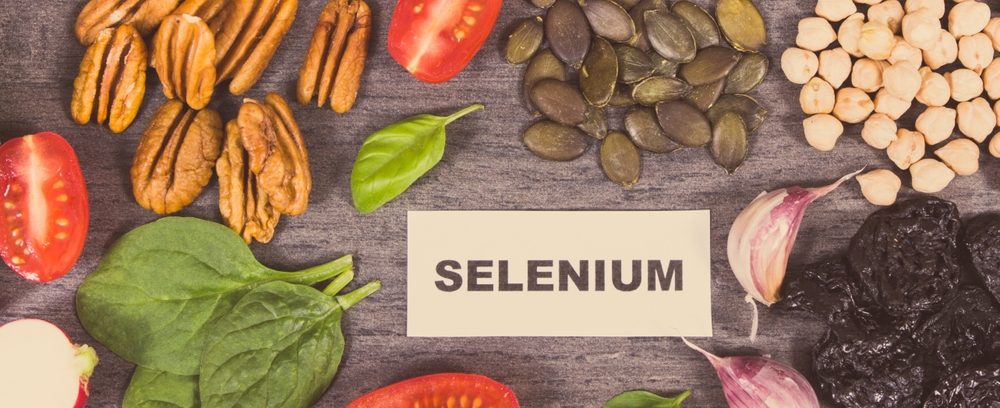TL;DR
-
Selenium is essential for thyroid hormone activation (T4 → T3 conversion).
-
Deficiency leads to high T4, low T3, and elevated TSH, mimicking hypothyroidism.
-
Selenium and iodine work together — iodine deficiency must be corrected first.
-
Newer research shows selenium may reduce thyroid antibodies in Hashimoto’s and support thyroid health in pregnancy.
-
Both deficiency and excess can be harmful — balanced intake is key.
Selenium is an essential trace element required for the proper function of the thyroid gland. It’s a key component of enzymes called selenoproteins, including the deiodinases that convert thyroxine (T4) into its active form, triiodothyronine (T3).
Classic Research
A landmark review in Endocrine Reviews (1992;13(2):207–220) highlighted that rats fed a selenium-deficient diet developed high T4 and low T3 levels. Over time, this imbalance worsened, showing that selenium is necessary for hormone activation.
Selenium deficiency also affected pituitary function. TSH (thyroid-stimulating hormone) levels doubled in deficient rats — a pattern resembling hypothyroidism — while growth hormone decreased.
Developmental Implications
Cretinism (severe hypothyroidism at birth) has been linked with poor neurodevelopment. Supplementing selenium in isolation can actually lower T3 and T4 levels, so iodine repletion must be prioritized first. This underscores the delicate interaction between selenium and iodine in thyroid health.
Newer Research (2010–2024)
-
Autoimmune thyroiditis (Hashimoto’s): Several meta-analyses show selenium supplementation (typically 200 mcg/day as selenomethionine) may reduce thyroid antibodies (TPO-Ab, Tg-Ab) and improve well-being in some patients. PubMed link
-
Pregnancy & thyroid health: Selenium deficiency in pregnancy has been associated with higher risk of thyroid dysfunction and adverse outcomes.
-
Antioxidant role: Selenium-dependent glutathione peroxidases protect the thyroid gland from oxidative stress during hormone production, which generates hydrogen peroxide.
Key Takeaway
Selenium is vital for thyroid hormone metabolism and antioxidant defense. Too little impairs T4 → T3 conversion, while too much may cause harm. Adequate selenium from diet (Brazil nuts, seafood, meat, eggs, whole grains) is generally safe, while supplementation should be considered carefully — ideally guided by a doctor trained in natural healthcare.
FAQs
Why is selenium important for the thyroid?
Selenium is part of enzymes (deiodinases) that convert T4 (inactive hormone) into T3 (active hormone). It also supports antioxidant defense inside the thyroid.
Can selenium lower thyroid antibodies?
Yes. Clinical trials suggest that 200 mcg/day of selenium (usually as selenomethionine) can reduce TPO antibodies in Hashimoto’s thyroiditis, though results vary.
Should selenium always be taken with iodine?
Yes. In iodine deficiency, adding selenium alone may worsen thyroid hormone status. It’s safest to ensure adequate iodine intake before considering selenium supplementation.
What foods are high in selenium?
Brazil nuts (very rich — just 1–2 can meet daily needs), seafood, meat, eggs, and whole grains.
Is too much selenium dangerous?
Yes. Excess selenium can cause selenosis (hair loss, nail brittleness, GI upset) and has been linked to higher diabetes risk in very high intake. Most adults need about 55 mcg/day; supplementation above 200 mcg/day should be supervised.








